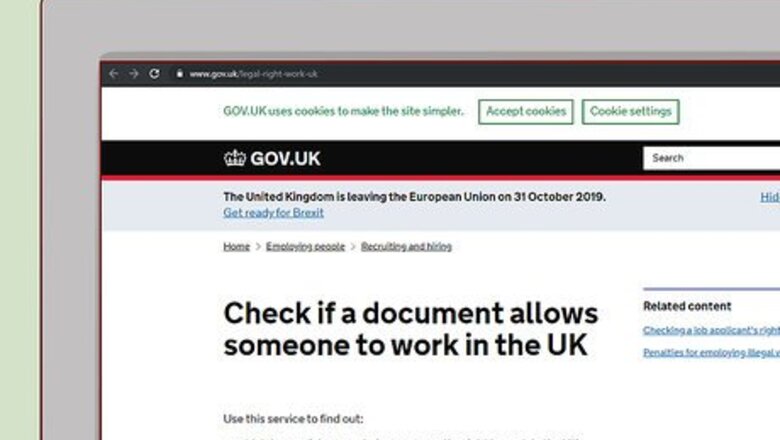
views
Applying for a Taxi License
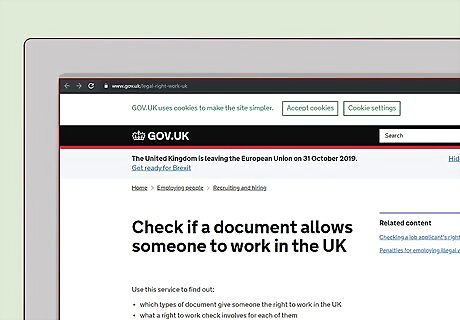
Check that you are able to reside and work in the UK. Taxi drivers in the UK are subject to the same employment laws as any other worker. You must be a UK or European Economic Area citizen or have a Work Permit issued by a UK immigration office. Check https://www.gov.uk/legal-right-work-uk to see if you have proper documentation. In London, if you have spent more than 3 consecutive months in a country outside of the UK, you must complete the "Living and Working Abroad" form from Transportation for London (TfL) and submit it in your application.
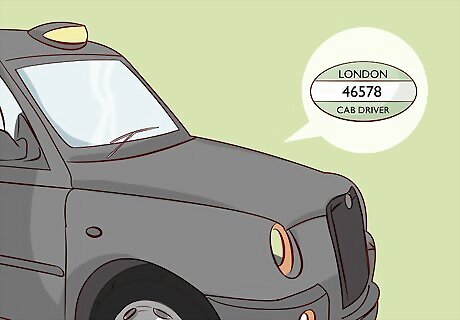
Be at least 18 years old to apply, and 21 to get a license in London. An applicant to become a taxi driver must be at least 18 years of age, with no maximum age requirement in most locales. London requires taxi license holders to be over 21. While Transportation for London (TfL) requires taxi license holders to be 21, if you are between 18 and 21 years old, you are eligible to submit an application and take the knowledge exam, though you will not receive your license until your 21st birthday.
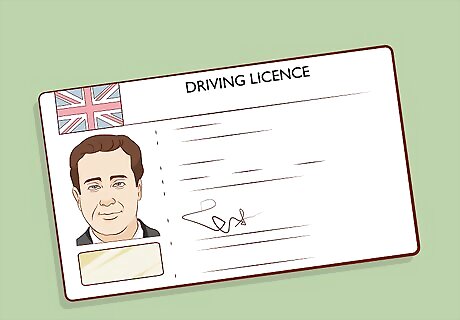
Have a full UK driving licence for at least 12 months or 3 years in London. In order to become a taxi driver in the UK, you must pass the theory and driving exams required by the government for all drivers. Most localities in the UK require you to have your license for 12 months, but in London, the requirement is 3 years. Full European Economic Area driving licences are also acceptable to become a taxi driver in the UK.

Pay for a background check from the Disclosure and Barring Service. In the UK, you must be deemed a “fit and proper person” to become a taxi driver. The Disclosure and Barring Service (DBS) performs “enhanced” background and character checks on prospective taxi drivers, which must be ordered by your council. A DBS enhanced background check costs around £60. You can’t order a DBS enhanced check for yourself. As part of your application, your local council will likely ask you to pay for an enhanced check that they will order.

Get a medical exam to ensure that you meet the standards. A doctor will check a variety of bodily functions to make sure that you are able to safely operate a car. These include your vision, hearing, reaction time, muscle control, and memory. Ask your doctor to perform a DVLA Group 2 diagnostic battery if you are in London. Not all local councils require a medical exam, so be sure that yours does before you get one. Anyone who is capable of driving a car with or without reasonable accommodations is eligible to become a taxi driver. Check https://tfl.gov.uk/info-for/taxis-and-private-hire/licensing/apply-for-a-taxi-driver-licence for a list of permissible accommodations.
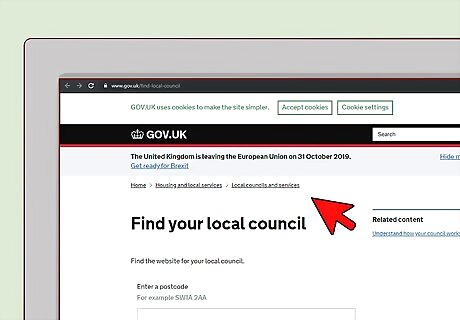
Request a copy of your area’s application from your local government. Most cities, counties, and regions have their own individual application for taxi drivers. Consult https://www.gov.uk/find-local-council to find the right website or address so that you can download or pick up a paper copy of the application. You may have to pay an application fee in some areas. Other areas simply request you to pay for the background and medical exams, if they are required.
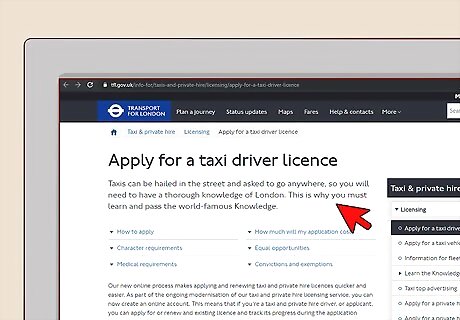
Register your application online if you live in London. The application to become a taxi driver in London is available online at https://tfl.gov.uk/info-for/taxis-and-private-hire/licensing/apply-for-a-taxi-driver-licence. The application will request your name, contact information, a complete employment and residence history, and a photo of you. It costs £120 to submit your application, regardless of whether it is accepted. Your application must be accepted in order to be considered eligible for the knowledge exam.

Take a taxi driving theory and knowledge, if necessary. In addition to requiring a valid driving license for 1 to 3 years, some areas, like Northern Ireland, require you to take theory and knowledge of driving tests to get a special taxi license. In some cases, this will include a supervised practical component. Check with your local council to determine if this is necessary. Note that this is not the same process as an area knowledge exam. Driving tests like the one required by Northern Ireland are considered part of your taxi driving license application process, and check your ability to operate a vehicle safely.
Taking the Knowledge Exam

Study for the knowledge exam by exploring and memorizing routes. In London, the “Blue Book” is the definitive study guide, containing the 320 routes you will need to memorize. Other cities and locales may have different study guides for you to use, depending on the intensity of their exam. Be aware that it often takes 3-4 years to prepare for the All-London “Knowledge.” Other local and suburban knowledge exams typically take significantly less time. The London knowledge exam, called “The Knowledge,” is considered the most rigorous taxi exam in the world. Take self-assessments and practice tests, if they are offered.

Attend a London taxi school if you need structure to study. The complexity of the London Knowledge has led to the creation of many different schools for future taxi drivers. Attending one is a great way to improve your chances of passing the exam. Schools include Knowledge Point School and The London Knowledge School, among many others. Programs like these cost roughly £25 to £50 per month, and can last as long as you need to study for both the written and oral components.
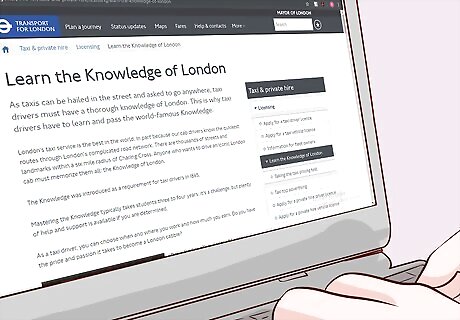
Register for the knowledge exam. The information your local council sent to you when your application was accepted will include a form that allows you to register for the exam. You may have to register online or in person, depending on your location. Be sure to schedule the exam far enough in advance that you have time to review. London’s knowledge exam costs £200 for the written component and £400 for the oral component, but others cost less.

Attend a written knowledge exam held by your local council. In Bristol, for instance, you must attend a 90 minute exam with 100 questions about the local area. London’s exam has 30 questions on routes and landmarks, on which you must score above 60% in order to pass. You must take the initial written London Knowledge exam within 2 years of receiving your introductory packet. There is a second suburbs knowledge test for those seeking an All-London certification.

Go through the “Appearances” process if you are in London. Over the course of a year or two, you will have to attend one-on-one oral exams that measure your recall of routes and your ability to design the fastest route in your head. Book these through your local council. You will be asked 4 questions per session, graded on an A-D scale. It typically takes 4 meetings to pass enough times that you qualify one stage, of which there are 3. Appearances must be spaced out for a set number of days per stage. In the first Appearance stage, this is 56 days, in the second, it’s 28 days, and in the third it’s 21 days.
Registering Your Vehicle
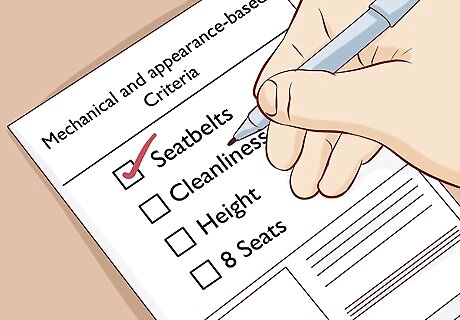
Contact your city or county’s council about the registration criteria. Some cities have more stringent mechanical and appearance-based criteria than others. The only universal UK criteria is that the vehicle have no more than 8 total seats. Other requirements may include the number of seatbelts, cleanliness, and the vehicle’s height clearance. You will almost certainly have to undergo a vehicle inspection of some kind, and purchase taxi insurance.
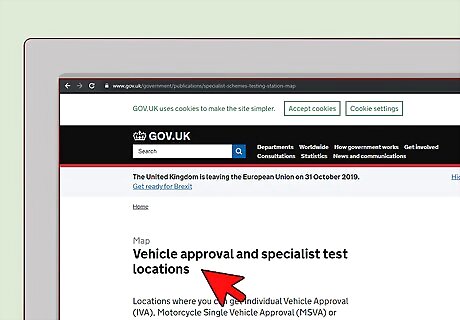
Take an emissions test, if necessary. Your vehicle must meet the Euro 6 standards, and in London, all vehicles presented for licensing must be zero emissions capable (ZEC). You will have to pay for this emissions test, and documentation will be required during your vehicle inspection. Check https://www.gov.uk/government/publications/specialist-schemes-testing-station-map for the closest testing location near you. The test will cost around £25. If your car does not pass the emissions test, you will either have to get the necessary repairs or consider an alternative, like getting a new car or joining a fleet.

Compare your car’s age to the maximum provided by your region. Only cars no more than 15 years old are permitted to become London taxi vehicles, though other local councils may register older cars. Your vehicle registration will list the model year of your car. If your car is too old, you will either have to purchase a newer one or consider joining a fleet.
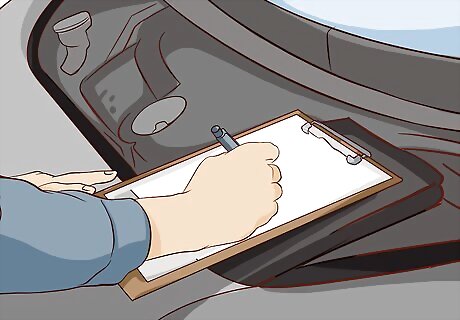
Go through the list of vehicle requirements provided by your locale. TfL has several conditions of fitness that all taxis in London must meet, both mechanically and in terms of appearance, like the famous all-black requirement. Even the make and model of car may be restricted. Many cities in the UK follow similar guidelines, though others may have less stringent appearance criteria. You can ask a mechanic to take a look to make sure you have all of the mechanical aspects in order before your inspection. This will cost you, however, and if you are missing anything, you will have to pay to add or repair it.
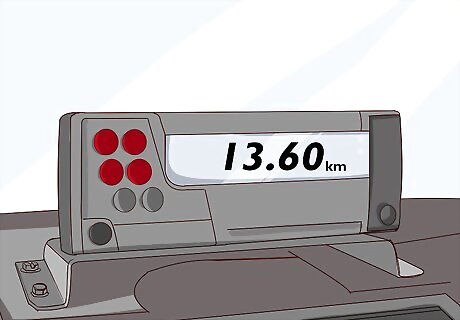
Have a taxi meter installed in your vehicle. You will most likely need to have a taxi meter and the ability to accept card and electronic payments, as well as print receipts. There are taxi supply companies you can purchase this equipment from. Be sure to request certificates upon installation, as you will have to present them at your vehicle inspection.
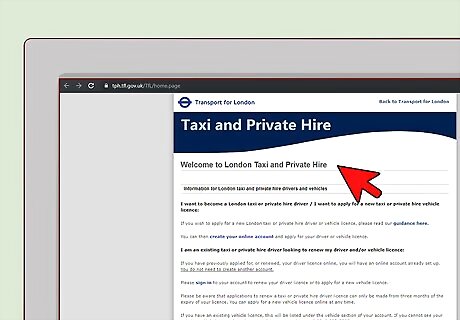
Book your taxi vehicle inspection, if required. In London, you will need to register online and set up an inspection appointment by signing into your account on TfL’s website or calling 0343 222 5555. The taxi registration information your local government outside of London provided you will list instructions for booking an inspection. Double check that you have all of the necessary documentation. Some examples of appropriate documents include your vehicle registration, insurance certificate, emission declaration, and road tax receipts. These documents should be in a file folder for easy access. Access your TfL online account at https://tph.tfl.gov.uk/TfL/home.page.

Join a fleet if you do not own a vehicle or if yours is unfit. By joining a fleet, you will be able to rent a vehicle for a small monthly fee, allowing you to bypass the maintenance and upkeep costs, as well as the strict regulations your vehicle would have to abide by in order to become certified in the first place.



















Comments
0 comment